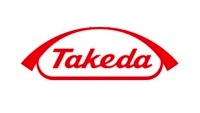
Takeda Pharmaceuticals makes the drug and has been under FDA orders to track the results of a study of its risks since approving it in 2009. While those results are still pending (some eight years later), the initial numbers appear to confirm the trends shown with Uloric during pre-approval testing.
Those pre-approval tests earned Uloric a Warning and Precaution label over certain cardiovascular events that appeared more frequently in febuxostat patients than those taking allopurinol during clinical trials. Those events included heart attacks, strokes, and other heart-related deaths. In response to these elevated risks, the agency approved the drug while simultaneously requiring Takeda to conduct further studies into its safety.
The study, which was conducted by Takeda over its own medication, showed that “overall, febuxostat did not increase the risk of [heart-related] events compared to allopurinol. However, when the outcomes were evaluated separately, febuxostat showed an increased risk of heart-related deaths and death from all causes.”
The logic behind approving a medication that is either known to pose significant safety risks or is suspected of posing significant safety risks is something that can only be explained by the agency that routinely does it. In fact, according to a study published earlier this year in the Journal of the American Medical Association, one-third of the drugs that the FDA approves are eventually found to carry safety risks after the medications have gone to market.
The study included a review of some 222 products that the agency had approved for public use and consumption between the years of 2001 and 2010. 71 required additional action; including three which were found to be so dangerous that the only available action was to completely remove them from the market.
Takeda paid over $2 billion in 2015 to settle Actos lawsuits over claims that the company knew that its diabetes drug posed a bladder cancer risk for years, but concealed that fact from the public.
